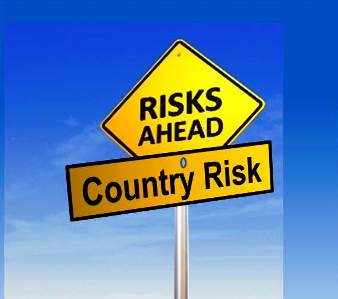 Argentina – a new government confrontation with farmers;
Argentina – a new government confrontation with farmers;- Ecuador – massively growing indebtedness to China;
- India – the long-awaited interest rate cut;
- Madagascar – the government resigns; Switzerland – a shock decision by Nationalbank;
- Uganda – heavy pressures on the shilling.
CROATIA: President-elect Kolinda Grabar-Kitarovic will have to accept a possibly contentious cohabitation with the incumbent Social-Democrat-led government at least until a general election is held late this year. The economy remains in precarious shape and no early upturn is in sight.
FINLAND: Few countries depend as much on trade with deteriorating Russia as Finland does, and this means that the global fall in oil prices will hurt the stagnating economy more than it will help. Prime Minister Stubb will have to fight to keep his truncated coalition in power until elections are due in April.
FRANCE: The Islamist violence that hit Paris last week helps to underscore that this is a trying time for community relations in France. The problem is not made any easier by the persisting economic difficulties. A package of reforms proposed last month would be a move in the right direction, if the authorities follow through on it.
GHANA: Accra will seek to borrow more, internationally, after abandoning offers in 2014. It is hoping to clinch a loan deal with the IMF, and proposed budget measures have evidently impressed the Fund. Projections for the economy have been pared and are now much more realistic.
ITALY: The latest unemployment statistics underscore the urgency of implementing the structural reforms Prime Minister Renzi is pushing for, but there are powerful forces aligned against progress. Added to these will be the need to elect a new President.
SAUDI ARABIA: King Abdullah’s illness has refocused the world’s attention on the Saudi succession issue, at a time when the Kingdom faces a host of challenges. This issue was pretty much resolved a year ago, however, and for the time being a major shift in Saudi Arabia’s oil policy is improbable regardless of who occupies the throne.
SRI LANKA: The country’s new President promises a tolerant era of harmony and political freedom, after years of growing repression. To what extent he will keep his vows remains to be seen. To his advantage, he inherits an economy in generally good shape.
VENEZUELA: Local conditions are rapidly going from bad to worse as foreign exchange for imports is drying up. President Maduro’s trek around the globe in search of financial help has been yielding mixed results. Bond holders expect a default, if not in the immediate future, and Petrocaribe beneficiaries are preparing for the day when they may have to make do without Venezuela’s subsidies.
This page is provided by S.J. Rundt & Associates, Inc., specialists in country risk assessment, consultants to multinational companies & banks, and publishers of Rundt’s World Business Intelligence and The Financial Executive’s Country Risk Alert. To order a subscription or individual issues of these reports, in print or by e-mail, contact S.J. Rundt & Associates, P.O. Box 1572, Montclair, NJ 07042; Telephone: (973) 731-7502, Fax: (973) 731-7503; E-mail: info@rundtsintelligence.com; Web site: www.rundtsintelligence.com.






















